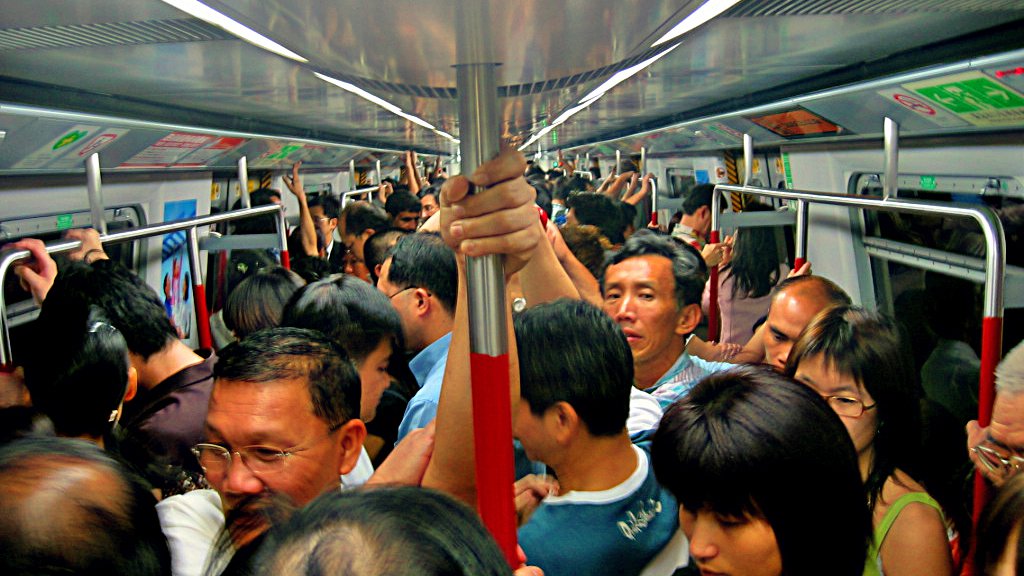Microbes are all around you, but they are especially found on and in your body. Your skin is a rich ecosystem with hundreds of different types of bacteria. Throughout the day, you pick up microbes everywhere you go. The simple act of opening a door makes you collect yet another handful of bacteria. But don't despair. Your own skin microbes protect you. They are the first line of defence against possibly pathogenic microbes from the outside. Your benign skin microbes can't stop all pathogens, however, and that's why it's important to know how pathogens spread. For this reason, the researchers from Hong Kong studied how microbes travel around the city, specifically by metro.
Travel by metro
More than 5 million people travel by metro in Hong Kong each day. The research team asked a group of volunteers to ride various metro lines for half an hour in both the morning and evening in order to simulate a realistic commuter experience. Before these volunteers boarded the metro, they washed their hands. They were instructed to hold onto a handrail, pole or handle for the duration of their metro journey. Afterwards their hands were tested for bacteria and the bacterial population was determined using modern DNA sequencing methods. The researchers discovered that the morning microbe populations differed greatly from one metro line to the next, and that this was dependent on the environment around the specific metro lines. However, by the evening rush hour these populations had been mixed into one big microbial melting pot that mainly consisted of human skin bacteria.
Antibiotic-resistant microbes
The research team also tracked the movement of antibiotic-resistant microbes through the metro system to understand how antibiotic resistance can spread from one region to another. One of the metro lines connects Hong Kong with mainland China, where antibiotics are commonly used in pig farming. The research showed that this metro line had much higher levels of antibiotic-resistant bacteria in the morning than the other lines. By the end of the day, these microbes had spread throughout the entire Hong Kong metro network. This could be a major concern, since bacteria are becoming increasingly resistant to antibiotics. Bacteria easily transmit this immunity to one another, and the further they travel, the more this resistance can spread.
Source: Cell Reports

